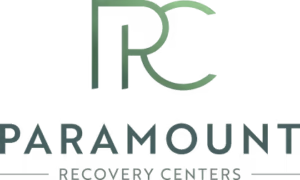What Is Alcoholism
The dictionary defines alcoholism as the inability to control one’s drinking due to a physical and/or emotional dependence on alcohol. Some people can still function with this disease so well that they can maintain a job and relationships. How To Get My Dad Out of Severe Alcohol Addiction?The best way to recover from alcoholism is to seek alcohol addiction services in Massachusetts.
Signs Your Parent Is an Alcoholic
Any drug rehab in MA can help you pinpoint the signs of alcoholism. These are some of the most common ones to look for.
- Blackouts
- Irritability
- Prioritizing drinking over everything
- Drinking alone
- Frequent hangovers
- Changes in appearance and/or behavior
If you notice these symptoms, you might want to bring up drug and alcohol rehab.
How to Bring up the Issue
It seems daunting to bring up your parent going to Alcohol Rehab in MA. But, this is the best way to get your dad the help he needs.
If you fear an angry outburst, bring a trusted family friend. But make sure to let your father know that you think he has a problem with alcohol. Tell him how it affects you as well. Alcohol and drug treatment for Dad is available.
Request a 100% Confidential Callback
If you or a loved one are struggling with substance abuse and mental health problems, contact our drug and alcohol rehab center in the Greater Boston area to talk confidentially with an addiction specialist. For immediate help, call (978) 878-3677 or fill out the form below, and we will get back to you as soon as possible.
"*" indicates required fields
Men’s Rehab Program vs Women’s Rehab Program
Men’s and women’s addiction treatment in MA is the same kind of service. But many people feel more able to open up in group therapy when in a same-gendered program. The only difference is that men go to a Men’s rehab program and women go to a women’s rehab program.
What to Do if a Parent Refuses Help
The sad fact is that some parents don’t want help and you can’t force them to seek help. You should report any abuse or neglect caused by their alcoholism though.
Even if they do agree to get help, about 40% to 60% of people with substance abuse disorders relapse at least once. They have to put in the work and have a great support system like you!
Your Recovery Journey Starts With One Step
Alcoholism is a dangerous disease that affects everyone in the family. That’s why it’s important to seek help if alcoholism is affecting your family at all.
Keep this article in mind so you can identify the signs and seek help when appropriate. That way, your family doesn’t have to suffer any longer than they have to.
We hope you liked reading this article and that you learned all about finding a Men’s Rehab Program. If you have any questions about this article or if you’re looking for great alcohol rehab in MA, contact us today!



